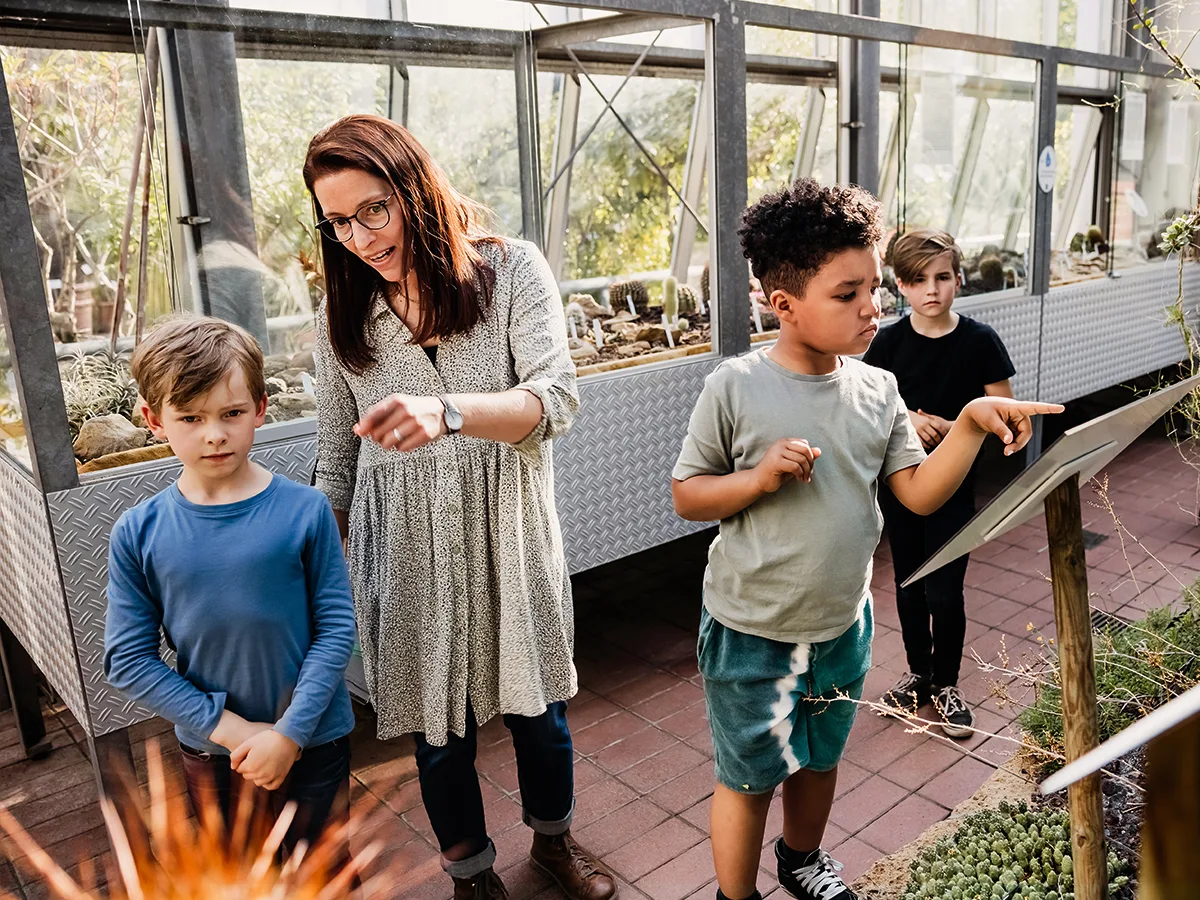3 ways to help make field trips go well for kids with sensory processing challenges
Field trips can be tough for kids with sensory processing challenges. Learn how planning ahead and working with chaperones, teachers, and your child can help.

At a glance
Planning is key to managing sensory challenges on field trips.
Your child may need accommodations on field trips, just like in school.
Prepare your child for the whole field trip experience, not just for a specific destination.
If your child has sensory processing challenges, you probably know that field trips can be tough. Unfamiliar routines or unexpected sensory input might lead to sensory meltdowns or other strong reactions. And this can make your child stand out from other kids.
Here are three steps to make field trips go smoother.
1. Prepare field trip chaperones.
Chaperones are sometimes other teachers. But they’re often the parents of other kids. Either way, they may not know your child as well as your child’s teachers do. And by law, the school can’t share your child’s records with other parents.
But you can share information about your child. Consider asking the teacher to pass along a note to the trip chaperone. You don’t have to go into detail about your child’s challenges. But you may want to let the chaperone know about some of the difficulties.
If your child gets to help with trouble spots, you can share that information, too. Any accommodations your child has in school should also be available on a field trip.
2. Troubleshoot with your child’s teacher.
It’s a good idea to talk with your child’s teacher before an upcoming field trip. Here are some things to cover:
Ask about cell phones. Your child may need to check in with you during the trip. Is it possible to keep a phone handy? Discuss what “need” means. Is it only when your child is overwhelmed? Or are there other times?
Talk about “field trip only” accommodations. For instance, maybe your child can have an aisle seat to avoid feeling overcrowded or closed in. Or use headphones if noise sensitivity is a problem.
Ask for an overview of the schedule. Knowing the basic plan can help you tell your child what to expect on field trip day.
Go over the transportation plans. Confirm how the class is traveling, who will be with them, and if they’ll be using a “buddy system.”
Talk about suitable “buddies” for your child. An adult buddy can make your child feel singled out. Ask for your child to be paired with another student. If needed, they can both be accompanied by a chaperone.
Discuss food issues. If the kids will be eating at the field trip venue, ask to see a menu. If you know your child won’t eat the food, mention that you’ll be packing a lunch.
Having a backup plan in case things don’t go well is essential, too. Make an action plan with the teacher for managing a meltdown. And talk about having someone available if your child needs a break from the group.
3. Prepare your child.
It’s easy to focus on the destination and what happens there. But there’s a lot more to field trips. Prepare your child for the entire experience.
Here are some topics to cover and things you can do to help.
Go over the schedule. Talk about any potential trouble spots (such as crowds or new foods). If you have a young child with sensory challenges, you can also create a picture schedule.
Explore the area. If possible, take a “virtual tour” through the destination’s website with your child.
Help your child practice self-advocacy. Discuss ways to communicate needs and which adults your child can turn to for help.
Send a small “sensory kit” with your child. Pack the tools your child needs to be comfortable, like sunglasses or earplugs.
Ensure your child is comfortable on field trip day. Let your child pick out clothes to wear. Have your child get a good night’s sleep and eat well before the trip.
This may sound like a lot of work. But successful field trips can be a lot of fun for your child. They’re important learning tools that can expose kids to exciting experiences they can’t have in the classroom.
For more tips, explore ways to help grade-schoolers with sensory challenges manage trouble spots at school.
Key takeaways
Teachers can’t share information about your child with chaperones, but you can.
Work with chaperones and teachers on ways to help your child feel less singled out.
Knowing the schedule, having sensory tools on hand, and being able to self-advocate can help your child manage field trips more easily.


